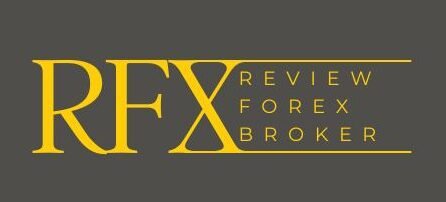The forex trading landscape is significantly shaped by regulatory frameworks, which can impact brokers and traders in various ways. Recent regulatory changes across different regions are reshaping how forex trading is conducted, aiming to enhance transparency, protect traders, and ensure market integrity. This blog provides an update on the latest regulatory changes affecting forex brokers and traders, outlining their implications and what you should be aware of.
1. New Leverage Limits in the European Union (EU)
Overview: The European Securities and Markets Authority (ESMA) has introduced new leverage limits for retail traders in the EU, aiming to enhance investor protection and mitigate risks associated with high leverage.
Key Changes:
- Leverage Restrictions: Retail Forex traders are now limited to leverage of 1:30 for major currency pairs, 1:20 for non-major currency pairs and commodities, and 1:10 for stocks and cryptocurrencies.
- Margin Requirements: Higher margin requirements to cover potential losses and prevent over-leveraging.
Implications:
- Risk Management: Retail traders must adopt stricter risk management practices due to reduced leverage, which can limit potential gains but also reduces the risk of significant losses.
- Broker Adjustments: Brokers operating in the EU must comply with these leverage limits, which may affect their product offerings and trading conditions for retail clients.
What Traders Should Do:
- Review Risk Tolerance: Adjust trading strategies to account for lower leverage and higher margin requirements.
- Stay Informed: Keep up with changes in regulatory policies to ensure compliance and optimize trading strategies.
2. Increased Regulatory Oversight in the United States
Overview: The Commodity Futures Trading Commission (CFTC) and the National Futures Association (NFA) have increased regulatory oversight in the US forex market, focusing on enhancing transparency and protecting traders from fraud.
Key Changes:
- Enhanced Reporting Requirements: Brokers are required to provide more detailed reports on their trading activities and financial stability.
- Stricter Compliance Measures: Increased scrutiny on broker practices, including client fund segregation and transparency of trading conditions.
Implications:
- Broker Compliance: Brokers must invest in compliance measures and improve transparency, potentially leading to higher operational costs.
- Trader Protection: Enhanced oversight aims to reduce fraud and ensure that brokers adhere to fair practices, providing a safer trading environment.
What Traders Should Do:
- Verify Broker Credentials: Ensure that your broker is compliant with US regulations and has a strong track record of transparency and reliability.
- Monitor Broker Reports: Review broker reports and disclosures to stay informed about their financial health and trading practices.
3. Asia-Pacific Region: New Regulations in Australia and Japan
Overview: Recent regulatory updates in Australia and Japan are focusing on improving the protection of retail traders and enhancing market integrity.
Australia:
- ASIC Regulations: The Australian Securities and Investments Commission (ASIC) has introduced measures to limit leverage to 1:30 for retail traders and imposed stricter requirements for brokers regarding client fund protection and reporting.
Japan:
- FSA Regulations: The Financial Services Agency (FSA) has implemented tighter regulations on forex brokers, including stricter capital requirements and enhanced transparency of trading costs and risks.
Implications:
- Increased Compliance Costs: Brokers in these regions may face higher compliance costs due to new regulations and reporting requirements.
- Enhanced Trader Protection: Retail traders benefit from increased protection and transparency, which can lead to a safer trading environment.
What Traders Should Do:
- Understand Regional Rules: Familiarize yourself with the specific regulations in your region and how they affect your trading.
- Evaluate Broker Offerings: Assess how regulatory changes impact broker offerings and choose brokers that comply with local regulations.
4. Global Push for Improved ESG (Environmental, Social, and Governance) Compliance
Overview: There is a growing global focus on ESG compliance, with regulatory bodies and financial institutions pushing for greater transparency and accountability in the Forex trading industry.
Key Changes:
- Disclosure Requirements: Brokers and financial institutions are increasingly required to disclose their ESG policies and practices.
- Investment Criteria: Regulations are being introduced to promote investments that align with ESG criteria, influencing the types of products offered by brokers.
Implications:
- Market Shift: The push for ESG compliance may lead to changes in product offerings and investment strategies, with a greater emphasis on sustainable and responsible trading.
- Broker Adaptation: Brokers may need to adapt their practices and reporting to align with ESG requirements, potentially affecting their business models.
What Traders Should Do:
- Consider ESG Factors: Evaluate how ESG considerations impact your Forex trading strategies and investment choices.
- Choose ESG-Compliant Brokers: Look for brokers that align with ESG principles and offer products that meet your ethical and sustainability criteria.
5. Strengthened Anti-Money Laundering (AML) Measures
Overview: Regulatory bodies worldwide are strengthening AML measures to combat financial crimes and enhance the integrity of the forex market.
Key Changes:
- Enhanced Due Diligence: Brokers are required to implement more rigorous due diligence procedures to verify client identities and monitor transactions for suspicious activities.
- Reporting Obligations: Increased reporting requirements for brokers to disclose suspicious transactions and compliance with AML regulations.
Implications:
- Operational Changes: Brokers must invest in advanced AML systems and processes, potentially increasing operational costs.
- Trader Impact: Traders may experience more stringent verification processes and scrutiny of their trading activities.
What Traders Should Do:
- Provide Accurate Information: Ensure that all personal and financial information provided to brokers is accurate and up-to-date.
- Understand AML Policies: Familiarize yourself with AML policies and procedures that brokers have in place to ensure compliance and avoid potential issues.

